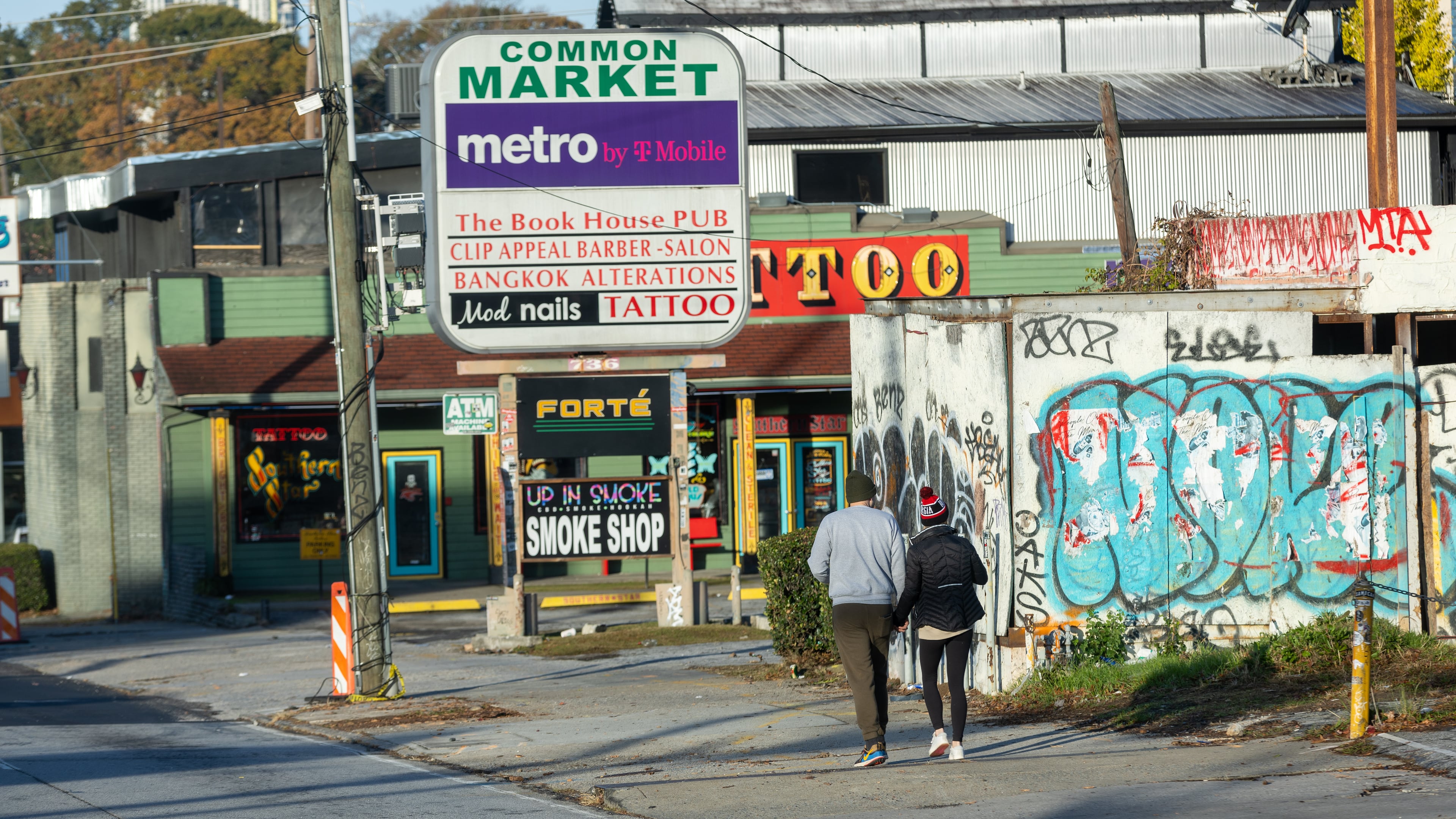OPINION: Ponce development shows transience of Atlanta’s favorite places

The bulldozers will be coming to flatten what The Atlanta Journal-Constitution has described as a “beloved gritty stretch” of Ponce de Leon Avenue.
The two-block collection of taverns, a tattoo parlor, a burned-out event site and cracked parking lots are largely unremarkable and would barely cause a second glance from passengers on a passing bus.
Nevertheless, an article in the online news site Axios called it “one of Atlanta’s most popular and storied nightlife strips.”
“Storied” is subjective term and the young Axios reporter’s frame of reference — his idea of “story” — is perhaps not necessarily long.
The two-block patch by no means matches historic and architectural marvels like the Fox Theatre, which was saved by preservationists in 1974, or the Atlanta Terminal Station, which was demolished in 1972.
But those Ponce joints are not unimportant. People have met future spouses there, have celebrated births and pending marriages, have hoisted toasts to the dearly departed or commiserated layoffs. Life, in all its incarnations, has occurred and been saluted along that stretch for decades. Now it will become something very different.
Can you say highest and best use? It’s the Atlanta way.

The land is adjacent to the Atlanta Beltline and catty-corner from Ponce City Market, the hulking brick fortress that long ago was the Sears distribution center and is now a popular, and storied, destination. Like it or not, the square footage along Ponce to be rubbled is just too valuable for what sits there now.
Someone thought “this land needs 350 apartments, 470,000 square feet of office space and 38,000 square feet of retail space.” And Portman Holdings, with a history of revising Atlanta landscapes, was that someone.
In its DNA, Atlanta is a boomtown.
When they slapped railroad tracks through the forest here in 1837, chief engineer Stephen H. Long said, “The Terminus will be a good location for one tavern, a blacksmith shop, a grocery store, and nothing else.” Obviously, he did not envision the future allure of live/work/play. Atlanta has been adept at building, knocking down, rebuilding, knocking down ...
At a recent community meeting, Virginia-Highland resident Colleen Malikian voiced a common cry, “I’m really sad that we’re just tearing down all of the character of Atlanta.”
I called Michael Rose, chief mission officer of the Atlanta History Center and author of the book “Lost Atlanta.”
“Atlanta has a long history of reinventing itself,” he said. “Change is inevitable; it’s ‘progress.’ “
As we talked, he sat in the office of history center CEO Sheffield Hale, and looked at a photo of the Cotton States and International Exposition of 1895, a grand event held in what is now Piedmont Park. It drew 800,000 visitors and helped put Atlanta on the map. Afterward, there was barely a trace of it.

“The buildings were all torn down,” Rose said. “There is no permanence.”
Hale, 62, grew up in Atlanta and said, “I see so much from my childhood gone. It gets to be really hard when the economics (of the land) change(s) and when there’s no value seen in structures.”
Atlanta has long had a cock-eyed view of “redevelopment,” he said. “A lot of the highest and best use was tearing down the building and leaving a parking lot.”
Years ago, old industrial sites were leveled for strip malls or parking lots. “Now they’re building faux lofts,” Hale said, to give wannabe urban dwellers that sought-after authentic feel.
Matt Bronfman, the CEO of Jamestown, the firm that developed Ponce City Market, said, “Cities are always evolving and changing.”
There’s a sense if you’re not knocking something down and erecting something newer and bigger, then you’re dying.
Bronfman, a Midwesterner by birth, said cities, especially in the Sunbelt, “are constantly renewing themselves with an eye to the future. In older cities like Chicago, people know ‘That’s where my grandfather went to lunch,’ " he said. “That’s not so much the case here.”
It’s the little losses that hurt.

The recent demise of the longtime mini-chain Zestos stung. When my daughter Emma, now a mom, was a toddler, we’d walk to the Little Five Points location, get soft-serve swirls and eat them on an apartment stoop. Now it’s set to be a vegan pizzeria. The Buckhead site was listed for a reported $11 million, which is tons of Chubby Deckers.
I’ve fallen into the melancholy habit of decrying the demise of beloved places. I’ve rued in print about the closure of the beloved Alfredo’s on Cheshire Bridge Road for luxury apartments and the Bagel Palace, as new owners of Toco Hills spruce it up and jack up rents. The small building downtown where the first country music hit song was recorded was scraped to build a massive Margaritaville.
The Tara Theater, where I saw “Goodfellas” for the first of many times, suddenly closed last month without time for a last flick. Patterson’s funeral home, where Atlantans have grieved for nearly a century, has closed and will be surrounded by gleaming towers.
The soul of Atlanta is suffering death by 1,000 redevelopments.



